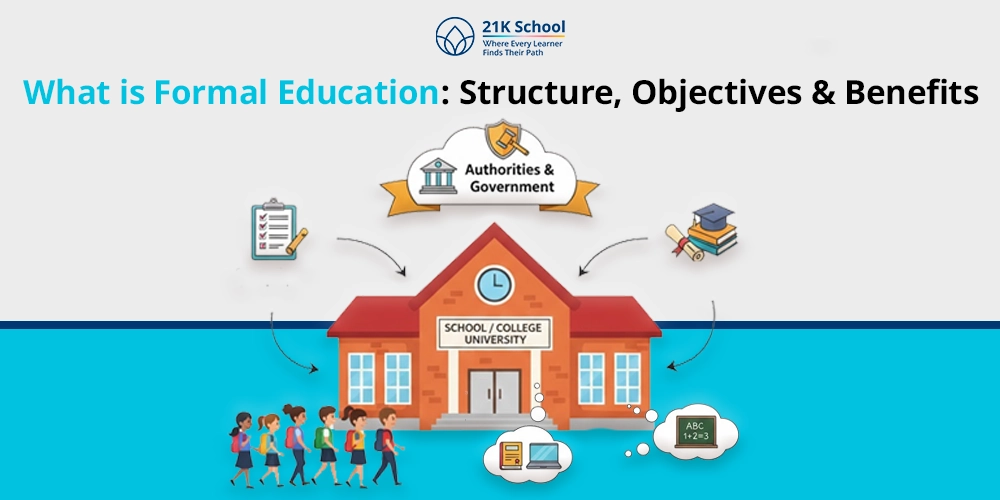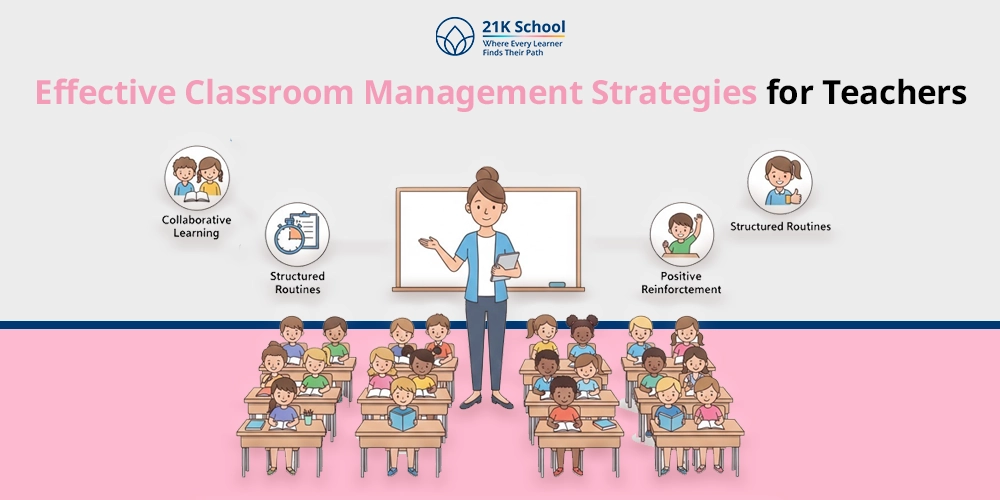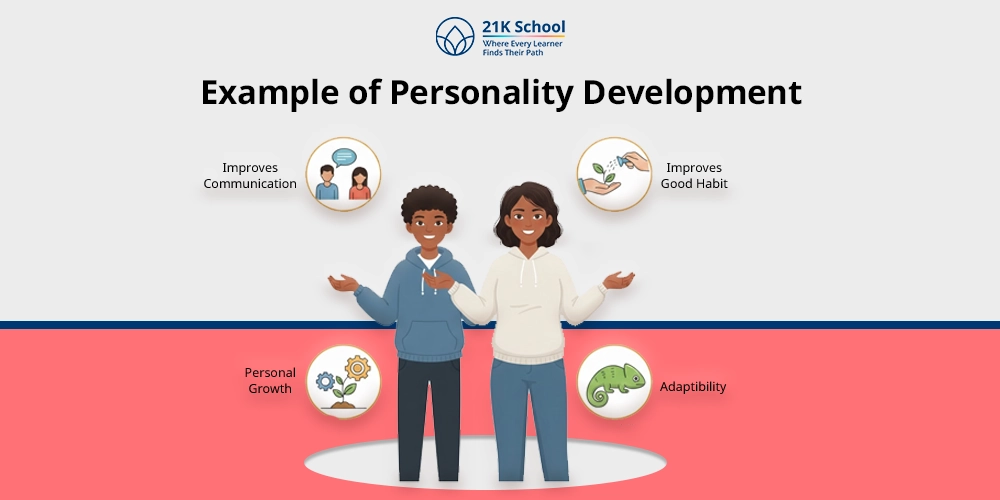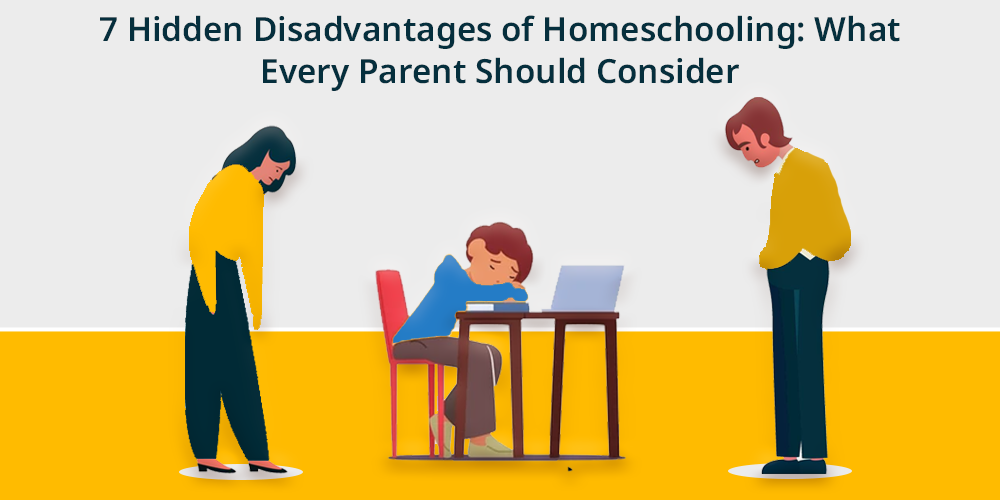
When you hear the term homeschooling, it brings to mind a warm picture. A kid studying at his own convenience, surrounded by the familiarity of home, free from the disciplinary rules of a school.
The prominence of homeschooling is rising compared to traditional schooling as online homeschooling in India is effective.
But as with everything, reality isn’t always as presented for the homeschooling kids. For all its benefits, homeschooling has disadvantages that are overlooked.
And if you’re a parent thinking of doing it, there’s plenty you need to know before getting started. Here are some of the prominent disadvantages of homeschooling.
Table of Contents
- 7 Disadvantages of Homeschooling – When Homeschooling Isn’t Easy
- 1. Children Miss Daily Social Contacts
- 2. Development of the Academic Blind Spots for Students
- 3. The Parent Bears a Burden That’s Difficult to Explain
- 4. Less Chance to Discover Interests
- 5. Homeschooling Expenses Pile Up Fast
- 6. Standardized Tests Can Turn into a Labyrinth
- 7. Not All Homes are a Perfect Learning Environment
- Is There a Smarter Alternative to Homeschooling?
- Final Thoughts
7 Disadvantages of Homeschooling – When Homeschooling Isn’t Easy
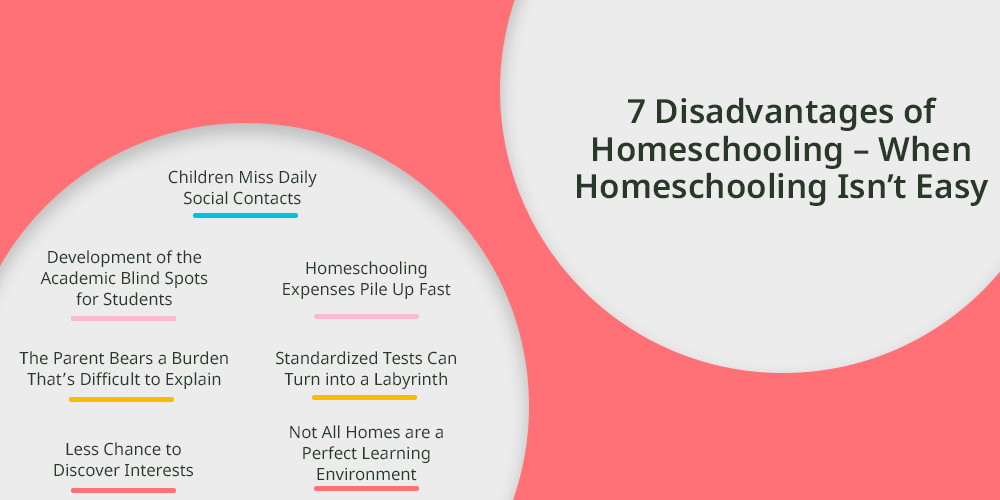
1. Children Miss Daily Social Contacts
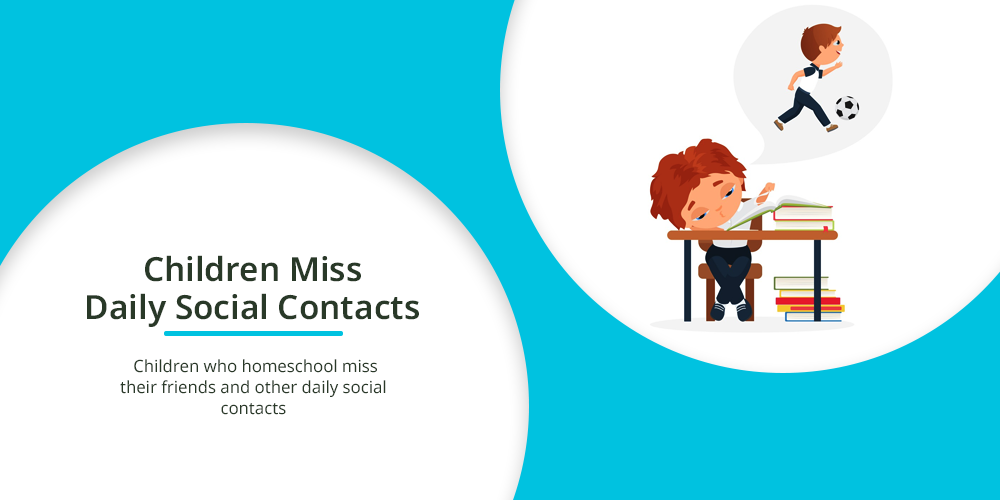
Children who homeschool miss their friends and other daily social contacts. Ask someone what their favourite memory of school is, and chances are it won’t be about algebra class or spelling bees.
They’ll say friends, lunch, field trips, or the time they laughed hysterically in an assembly.
In school, kids learn by observing others—how to share, how to compromise, how to navigate conflict. These aren’t things that can be learned out of a book.
When a child is learning alone, those little but essential lessons tend to be lost. They might graduate academically well-educated but emotionally unready.
While the benefits of homeschooling and socialisation are known, for homeschooling kids, they fail to consistently reach the level of diversity.
Even after some home-schooling families attempt to organize social events in the form of clubs or playdates, continuity remains an issue.
And for teenagers, who are programmed to crave peer approval, that gap can feel even more profound.
2. Development of the Academic Blind Spots for Students
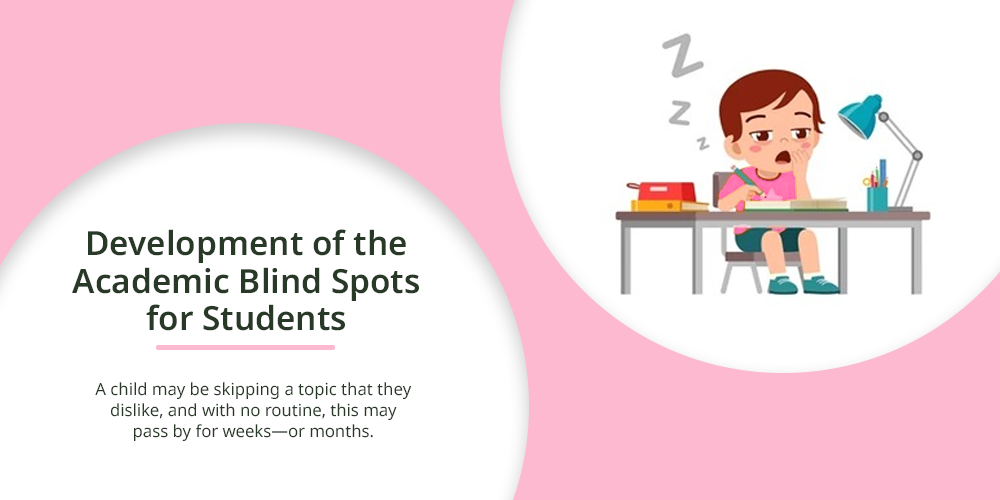
The homeschooling students may develop academic blind spots which can be seen when a child is struggling, or when they freeze to respond. However, in a normal classroom, trained teachers are always monitoring.
At home, it’s another story altogether.
Parents having other duties to attend to, fail to understand how to evaluate their homeschool student’s progress. A child may be skipping a topic that they dislike, and with no routine, this may pass by for weeks—or months.
When it gets detected, it can take intense effort to mend.
Schools, by contrast, have built-in checks—periodic tests, peer-to-peer comparisons, teacher assessments—that serve as buffers. Without them, it’s simpler for knowledge gaps to expand over time.
3. The Parent Bears a Burden That’s Difficult to Explain
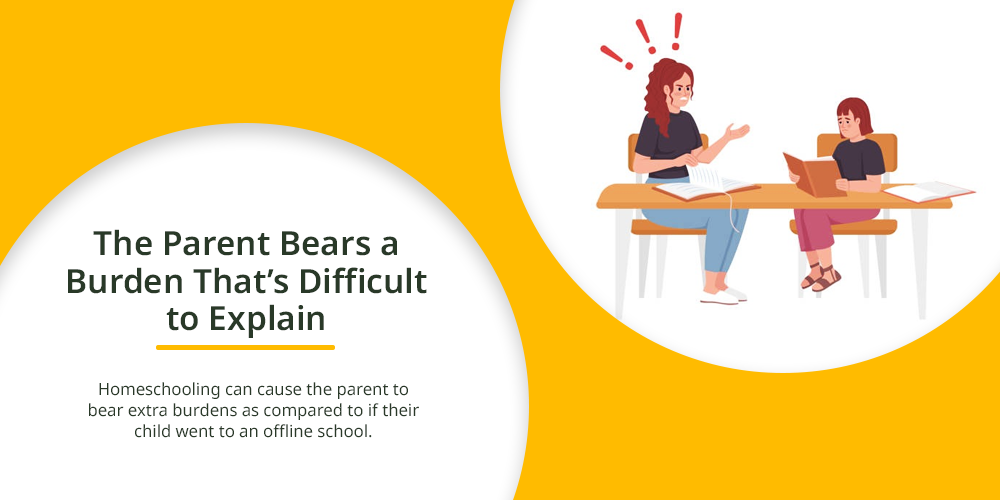
Homeschooling can cause the parent to bear extra burdens as compared to if their child went to an offline school. You become a full-time teacher, planner, scheduler, and motivator. Every single day.
That’s no small job.
Even excited parents usually experience exhaustion as weeks become months. And when the newness wears off, stress sets in.
There’s also emotional stress—”Am I doing enough? Is my child learning what they should?”
This type of internal self-doubt never really ends. It creates tensions in the parent-child relationship.
It can erode confidence gradually and cause burnout. And when the parent is exhausted, the whole learning environment suffers.
4. Less Chance to Discover Interests

Kids in schools discover hidden interests—a debate team, a robotics contest, a theater class. Oftentimes, these are what define their destiny.
Homeschooling simply can’t compete with this diversity, especially when the importance of extracurricular activities in student development can’t be ignored.
Unless parents go out of their way to find these activities, many children only do the essentials—math, science, reading. This occurs without learning for learners where their true passion is.
And when they do discover a passion, procuring professional instruction isn’t necessarily easy or cost-effective. Private coaching, sport academies, and art courses are pricey and not an option for everyone.
Limited exposure isn’t only constraining for hobbies—it can be constructive to a child’s definition of self and sense of self-esteem.
5. Homeschooling Expenses Pile Up Fast
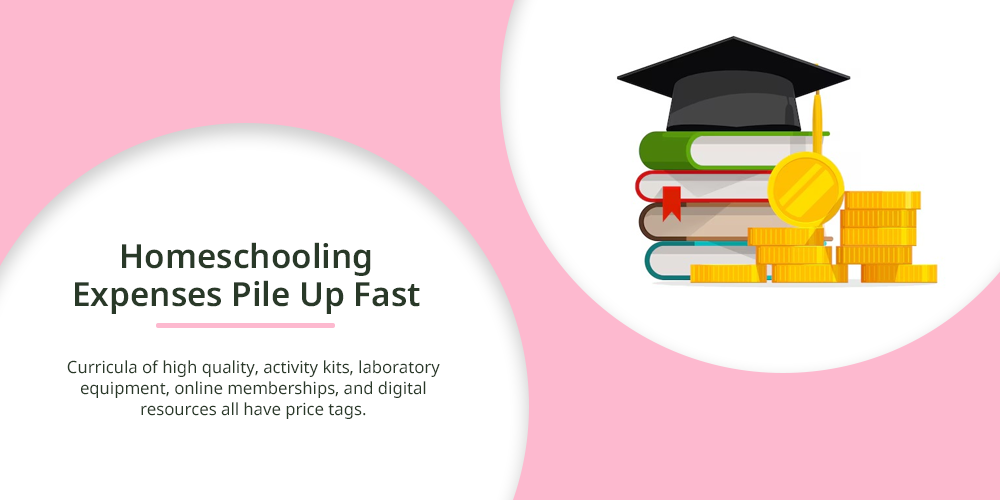
There is the widespread belief that homeschooling costs less. No uniforms, no transportation, no school fees.
But reality is not that simple.
Curricula of high quality, activity kits, laboratory equipment, online memberships, and digital resources all have price tags. And these are only essentials.
There’s also the undercover cost—when a parent loses a job or cuts hours to cover homeschooling. The cost to finances for making such a choice can linger over multiple years.
When bills accumulate, parents may try to skimp. And when that occurs, the learning that ends up being compromised is the child’s.
This is where 21K School steps in—offering an affordable, high-quality online education that ensures your child’s learning never takes a back seat.
Read on how expensive education can change into affordable online education.
6. Standardized Tests Can Turn into a Labyrinth
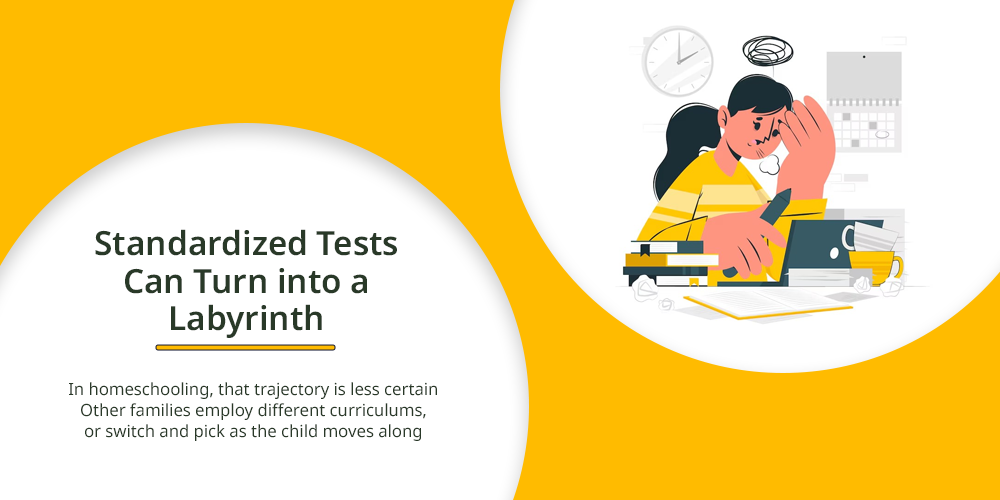
In a conventional school, students are on a defined syllabus according to national boards or international standards. Teachers are aware of what needs to be taught and how to prepare students for competitive tests.
In homeschooling, that trajectory is less certain.
Other families employ different curriculums, or switch and pick as the child moves along. But when the exams come along, particularly board exams or college admissions tests—life becomes complicated.
The student may have to become a private candidate, source tutors, or take bridge courses in order to qualify for higher studies.
The process can be intimidating and stressful, both for parents and students. And if left unguided, children can end up at a disadvantage during critical scholastic milestones.
Read on the causes, effects and coping strategies of exam stress.
7. Not All Homes are a Perfect Learning Environment
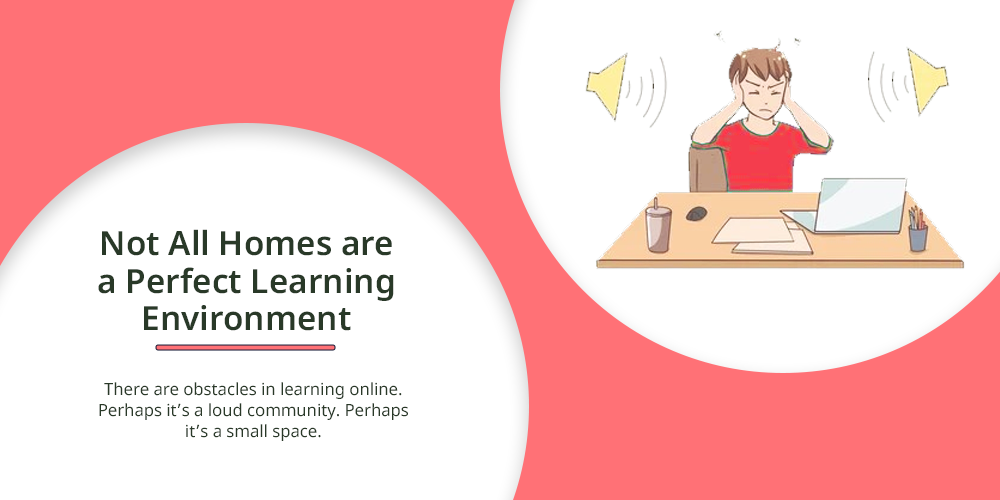
Let’s face it—homeschooling requires more than patience and affection. It requires an area that accommodates concentration, a routine that allows for discipline, and a place where distractions are the exception rather than the rule.
But not everyone’s home is like that.
There are obstacles in learning online. Perhaps it’s a loud community. Perhaps it’s a small space. Or perhaps it’s the emotional weather—stress, financial strain, or conflict at home.
If the learning environment is inconsistent or tense, it has a direct impact on the way a child learns. Even a gifted, inquiring mind can be disheartened by a chaotic or disorganized place.
This is something schools are equipped to deal with. Classrooms exist for learning. Homes, absent conscious adaptation, usually don’t.
So, it is up to the parents to create a positive learning environment.
Is There a Smarter Alternative to Homeschooling?
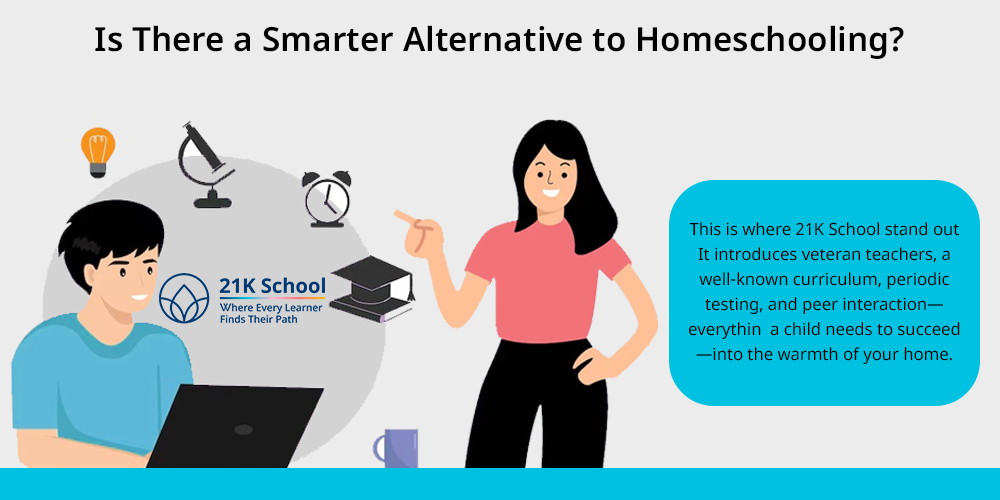
With all that said, it’s obvious that while the future of schooling is flexible and remote, it isn’t always the simplest or most durable path.
For that reason, many parents are now considering online schools—portals that harness the individual care of home education with the support and professionalism of conventional schooling.
This is where 21K School stand out.
It introduces veteran teachers, a well-known curriculum, periodic testing, and peer interaction—everything a child needs to succeed—into the warmth of your home. The features of 21K School show that there is still hope to find the perfect schooling method for your child.
It’s not convenient. It’s making learning whole, without the hassle of doing it yourself.
Final Thoughts
Homeschooling is an option for some families—but not all.
It takes time, effort, monetary investment, and instructional abilities that are difficult to maintain. And in the end, the effects on your child’s social, emotional, and academic growth can’t be denied.
If you’re thinking of homeschooling, look ahead beyond tomorrow. Ask yourself: Am I able to give the depth, diversity, and structure my child requires in the years ahead?
If the answer isn’t a resounding yes, that’s alright.
There are now solutions available—such as 21K School—that offer the best of both worlds. Your child remains secure, learns efficiently, and develops in a healthy manner, while you receive the support that all parents need.

